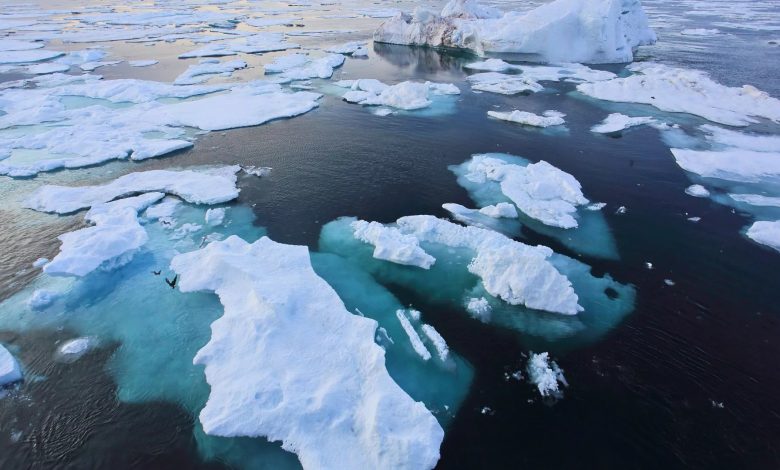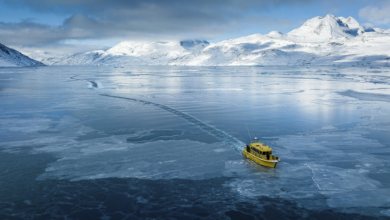Meltdown Alert: Arctic Ice Could Vanish by 2027, Experts Warn

According to the research study published in the journal Nature Communications, increasing greenhouse gas emissions are causing the Arctic sea ice to melt at an unprecedented rate of more than 12% per ten years. The new study reveals that the Arctic may see its first summer with almost all of the sea ice melting as early as 2027 which would be a major turning point in climate change.
A recent study found possible predictions down to the day although the majority of sea ice projections for the Arctic have concentrated on month by month conditions.These findings shows an ice free day might happen as early as late summer 2027 even though the earlier projections had the loss of the Arctic Sea estimated at about 2030.
Regardless of how humans change greenhouse gas emissions, scientists from the study published in Nature Communications argue that the first day without ice in the Arctic is now unavoidable and irreversible. To forecast the time of this extraordinary event, a global research team comprising climatologists Celine Heuze from the University of Gothenburg and Alexandra Jahn from the University of Colorado Boulder used advanced computer models.
Arctic Ice:
For thousands of years, the huge Arctic Ocean which covers more than 16 million square kilometers has seen a natural seasonal event with layers of frozen saltwater drastically accumulating throughout the winter months to form a thick ice cap that peaks in March and melts in September. According to the National Snow and Ice Data Center, this year’s Arctic sea ice minimum was 4.28 million square kilometers compared to its 16 million square kilometres,it is one of the lowest since records have been kept since 1978. Less than one million square kilometers of sea ice is considered “ice-free” in the Arctic by scientists.
This amounts to 80,000 square kilometers annually which is about the same area as Austria or the Czech Republic.
Impact of Ice-Free Arctic:
Events involving rapid ice loss are usually linked to harsh winters and spring warming. According to the study, if the Arctic Ocean is declared ice-free then it will have a substantial long-term effect on the fragile ecosystem of the northernmost sea which includes everything from the “emblematic polar bear to the crucial zooplankton.”
The sun never sets in the Arctic during the summer so without the reflective ice directing sunlight into space, the ocean will absorb and distribute a significant quantity of heat over the planet.
Furthermore international waters are not subject to legislation so commercial companies may be able to capitalize on opportunities in warmer Arctic waters. They could fish and deep mine historically inaccessible marine and mineral populations while commercial corporations could utilize a shorter shipping route through the Northwest Passage.
By altering wind and ocean current patterns, the warming may potentially result in more unpredictable and severe weather conditions.
The day that there is no more ice in the Arctic holds historic meaning. It will graphically show how humans have altered the Arctic Ocean’s color from white to blue, one of the planet’s unique natural features.



